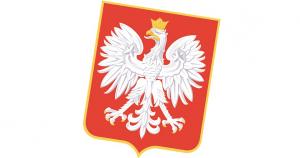 No idea is so good an ideologue cannot make it monstrous. An ideologue turns a good into the good and so makes an idol of an icon: a false god for a window to God. Perhaps, however, there is an ideology that can liberate humankind in our generation.
No idea is so good an ideologue cannot make it monstrous. An ideologue turns a good into the good and so makes an idol of an icon: a false god for a window to God. Perhaps, however, there is an ideology that can liberate humankind in our generation.
Why would anyone wish to be ideological?
Marx proposed we cannot help ourselves. We are all nearly blinded by ideology. Marxism proposed an “ideological man” – governed by the assumptions of the elite of his particular age- “the product of the economic and political arrangements peculiar to a specific phase of historical development.”*
Ideology traps most of us into our own times and assumptions, so argument aimed at persuasion becomes unimportant. One finds whether a person is for the good ideology or against the good ideology. Those who can see better, who lack the nearsightedness of improper ideology, who see the direction history must head to achieve justice, need not waste time with the ideologically blind.
As Ryszard Legutko in The Demon in Democracy: the Totalitarian notes about ideology:
The concept vaulted to unprecedented popularity, primarily because it proved to be a most convenient tool in political conflicts: it allowed discrediting one’s opponent without entering into a substantive argument.
The job of the good politician is to inculcate by any means necessary the good ideology while stamping out the bad. Everything is judged by how it advances the ideology and nothing, not art, family life, or even entertainment is unaffected. Ideology is absolutist, like a religion without God. There is no external power that is accessible to us that can completely pull us out of the ideological conflict.
We are in a perpetual battle between those who “get it” and those who must be resisted because they do not.
The ideological man is thus both absolutely suspicious and absolutely enthusiastic. There seems to be no idea under the sun that he would not put into question and make an object of derision, skepticism, or contempt, no idea that he would not reduce to an offshoot of hidden instincts, mundane interests, biological drives, and psychological complexes. Hence he is likely to despise reason as an autonomous faculty, to downgrade lofty ideals, and to debunk the past, seeing everywhere the same ideological mystification. But at the same time, he lives in a constant state of mobilization for a better world. His mouth is full of noble slogans about brotherhood, freedom, and justice, and with every word he makes it clear that he knows which side is right and that he is ready to sacrifice his entire existence for the sake of its victory. The peculiar combination of both attitudes—merciless distrust and unwavering affirmation—gives him an incomparable sense of moral self-confidence and intellectual self-righteousness.
Marxism came with several ideological principles, though these were applied variably in different societies. Legutko writes that liberal democracy, the dominant political philosophy of the West, did not at first have much of an ideological edge. By the 1960’s, however, Marxism and the idea of class struggle came to the West. This revolutionary period targeted real injustices such as racism and colonialism. Instead of being content to end the manifestations of obvious injustices, an ideology that blamed the entire culture for the evils grew, especially in academia.
All traditional ideas, vocabulary, and Western systems were found not just to broken, but active evils. Utopia could come, but only if ceaseless resistance to the system and purging of evils became central to life. The targets were as varied as the societies of the West. Literacy, language, scientific methods, religion, traditional ethics, the very idea of the West are assumed by now to be hopelessly corrupt. Trying to clean up the system is often seen as doing almost as much harm as good, so that the job is (nearly) endless. One generation’s heroes will have to be purged as multiple ideologues continue to seek the idea liberal democracy. If Marxism had only the class struggle, there was now an endless fight on multiple fronts: sex, gender, class, religion, body shape, wealth . . . The greatest intellectual freedom in some circles became the ability to see new struggles. (See the militaristic imagery used in “class struggle!”)
There is no end to the struggle, the ability to find enemies.
The great good that is sustained in a liberal-democracy, as opposed to a socialist state, is that while the elite media and educational system are tempted by the totalitarian, great pockets of liberty still exist. The liberal-democratic regime was conceived in liberty and raised to greatness by law, so both liberty under natural law are natural to the liberal-democratic regime. The very stultifying and predictable nature of the totalitarians of modernity make such a return easier.
The artist can crowd fund, like the comix artist Doug TenNapel (@DougTenNapel) and bypass the gate keepers. The educational system that saddles students with debt to pay for administrative salaries while closing off intellectual possibilities can still be passed in projects like The College at The Saint Constantine School.
We still have the ability to say: this social change seemed good, but now the logic of the change demands these further, more terrible changes, perhaps we were wrong?
We can say “no” to some decisions in our liberal-democracy and “yes” to older ways because a sizable minority prefer them. Dissent to the new regime, just like the dissent to the old socialist regimes, can ask only to be left alone to see who thrives.
Read the book.
—————————-
* Legutko, Ryszard. The Demon in Democracy, page 113.
This is a five part series on this fascinating text: 1. 2. 3. 4.











